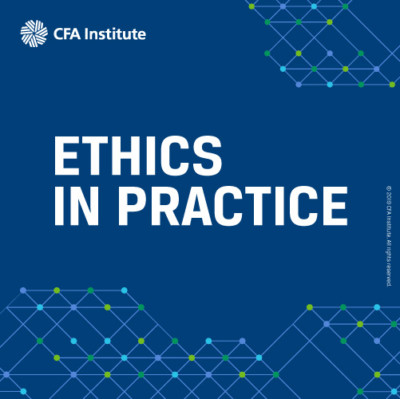Ethics in Practice: Mutual Fund Trades. Case and Analysis–Week of 8 July
How did you do evaluating this week’s (8 July) case? Check out the analysis below.
Case
Simpson is a senior portfolio manager for Regal Investment Advisors and acts as the firm’s compliance officer. Regal has Simpson review the mutual fund transactions of all discretionary client accounts using trade reports generated by Regal’s clearing firm. But those reports do not specifically identify when a client is moving assets from one mutual fund to another. Simpson wants to review these particular “mutual fund switch” transactions to ensure suitability of investments and to avoid churning in client accounts. To facilitate this review, Simpson requires each portfolio manager to complete a form and obtain approval from Simpson before initiating a switch transaction. If Simpson approves the switch, the portfolio manager is required to obtain a client’s written acknowledgment of the transaction. Simpson’s actions are
- acceptable because the procedures ensure suitability of mutual fund transactions.
- unacceptable because the procedures rely on third-party records to verify Regal’s compliance procedures.
- acceptable because the procedures require independent confirmation of the trade by a client in writing.
- unacceptable because the compliance procedures are not sufficient to detect churning in client accounts.
- none of the above.
Analysis
This case centers on whether a person in a position of authority effectively exercises supervisory responsibility. CFA Institute Standard IV(C): Supervisory Responsibility requires CFA Institute members to make reasonable efforts to ensure that those subject to their authority comply with regulations, firm compliance procedures, and fundamental ethical principles. At a minimum, members must make reasonable efforts to prevent and detect violations by establishing an effective compliance system. In this case, the compliance procedures are not reasonably designed to ensure the suitability of mutual fund switch transactions and to prevent churning because they rely solely on the portfolio manager to self-report and alert the firm about the transaction.
Regal has no supervisory mechanism in place to initiate a review of mutual fund switches in the event that a portfolio manager fails to complete the required form or otherwise fails to notify Regal of the transaction. This lack would allow unscrupulous portfolio managers to escape supervisory scrutiny by the firm. As a general matter, it would be acceptable and effective for a firm to verify trades using trader reports generated by its clearing firms. But in this case, these reports are incomplete because they do not identify mutual fund switch transactions. Acknowledgment by a client is ineffective if those trades that require acknowledgment are not made known to the supervisor, compliance officer, and client by a portfolio manager who does not follow the firm’s compliance procedures to obtain prior approval of the trade. Choice D is the best response.
This case is based on an enforcement action by the US Financial Industry Regulatory Authority from June 2019. In the case, two portfolio managers took advantage of the inadequate supervisory system to place mutual fund switch trades in which clients incurred unnecessary front-end sales loads of close to US$400,000 in losses.
Let us know what you think of Ethics in Practice by taking this short survey.
Have an idea for a case for us to feature? Send it to us at [email protected].
More About the Ethics in Practice Series
Just as you need to practice to become proficient at playing a musical instrument, public speaking, or playing a sport, practicing assessing and analyzing situations and making ethical decisions develops your ethical decision-making skills. The Ethics in Practice series gives you an opportunity to “exercise” your ethical decision-making skills. Each week, we post a short vignette, drawn from real-world circumstances, regulatory cases, and CFA Institute Professional Conduct investigations, along with possible responses/actions. We then encourage you to assess the case using the CFA Institute Ethical Decision-Making Framework and through the lens of the CFA Institute Code of Ethics and Standards of Professional Conduct. Then join the conversation and let us know which of the choices you believe is the right one and explain why. Later in the week, we will post an analysis of the case and you can see how your response compares.
Image Credit: ©CFA Institute


Answer is A.
A is answer